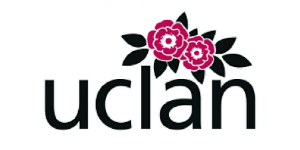University of Central Lancashire
Preston, UK
Full-time Study
The MSc Nanoscience and Nanotechnology has been developed from the ground up to deliver an interdisciplinary course that will bring you to the cutting edge of nanoscience and nanotechnology. There are extensive links to industry throughout the course and even an option to do a placement in industry for up to a year.
The course is flexible to your mode of study: 2 year full-time with a professional placement i.e. a year working for an industrial partner.
The course includes modules from Physics and Chemistry to give a well-rounded and comprehensive education in the current state of nanoscience and nanotechnology.
The two-year option with placement satisfies international requirements for an MSc where a single year course might not, but even without the year in industry, the course has elements dedicated to studying current and relevant issues in UK industries that work with nanoscience. All elements of the course are delivered by world-leading researchers.
Programme at a Glance:
Introduction to Nanoscience, Advanced Topics in Nanoscience: this module brings everybody up to speed about nanoscience in Semester One and then explores some advanced topics in Semester Two.
Current Topics in Industrial Nanoscience: four speakers from industry come in to talk about how nanoscience impacts their technology. You choose two to write about in detail.
Research Project: you spend all summer on a self-directed research project, conceived by one of the world-leading supervisory team.
Magnetism: you take a detailed look at magnetic behaviour on the small scale, including micromagnetics modelling.
Physics for Energy: you learn about the physics behind many currently used energy generation and storage technologies and what the future holds.
Professional Placement (optional): you find a placement with an industrial partner, with help from UCLan. You spend six months to just under a year with the partner and then return for the final summer.
Physical Chemistry for Surface and Elemental Analysis: you learn about how surfaces are examined on the nanoscale. You learn how to analyse data from several techniques.
Advanced Inorganic and Materials Chemistry: you learn how to make advanced inorganic materials, including nanomaterials, and how to study them. You learn about some larger-scale properties of molecules.
Professional Research Skills: you learn some widely applicable skills that are vital to a research career.
Entry
Requirements
BSc 2:2 in Physics or Chemistry or related subjects.
Learning
Environment and Assessment
The principal tutors are Dr Joe Smerdon (Physics) and Dr Tapas Sen (Chemistry),
both world-leading researchers in nanoscience and nanotechnology. Joe works
primarily with atomic-resolution microscopes to study molecules, graphene and
complex materials and Tapas works with nanoparticles.
Industrial partners play a role in the delivery of the course, and elements of the assessment rest on how industrial problems are considered. Most of the assessment takes place via coursework and written examinations.
A placement year is available. Following Semesters 1 and 2, the student may choose to work with an industrial partner for a year in a salaried role. We will assist the student in finding a suitable placement. Following the placement, the student returns to Preston to produce their Research Project over the summer period in Year 2.
Opportunities
Students will write several proposals to deal with current problems in
cutting-edge nanotechnology-focused industrial work. They may also seek a
placement year in a partner industry. There are opportunities to develop links
with industrial partners throughout the course.
Graduate
Careers
Nanotechnology is a burgeoning area – in fact, it is ubiquitous, and
practically all industries are affected by the increasing capabilities
researchers and companies are developing in this area. Through the links with
industrial partners throughout the course, we would hope that graduates will be
identified as potential employees – the duration of the course and the
interaction between students and industry during the course offers industrial
partners opportunities to get to know their prospective employees far superior
to the snapshot gained during a traditional interview process.
Progression
Routes
The course provides a strong grounding for students in Nanoscience and
Nanotechnology that will enhance their prospects whichever progression route
they choose, be it industry, education or research.
How To Apply
Apply via the online application system or see further information about postgraduate study and research.
International students should visit our international pages.
For further information contact us at:
Tel: +44 (0)1772 892400
Email: cenquiries@uclan.ac.uk
